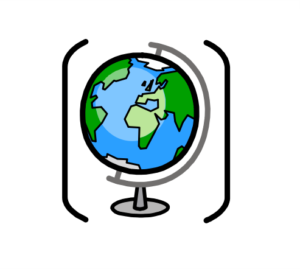Geography
The Geography Curriculum at The Pines
The Geography curriculum aims to develop pupils’ curiosity and fascination about the world and its people. It aims to broaden our pupils’ horizons and provide opportunities for them to discover and experience a range of cultures, places experience and develop knowledge about their locality, the United Kingdom and places around the world. We aim to develop respect for the physical environment and understand the impact of our actions and the choices we make. We aim to help to develop pupils’ transferable geographical skills so pupils they can apply them across other curriculum areas and in their future beyond The Pines. We aim to enable pupils to develop their locational awareness and to be able to safely access and understand the world around them and expand their cultural capital.
Intent:
Our curriculum aims to be broad and balanced and to promote independence and maximise the outcomes for all. We want all pupils to access a fun and exciting geography curriculum which develops their ‘geographical capability’ to the full, through sensory experiences and first-hand experiences in real life settings. The curriculum is progressive and relevant to children’s interests and needs and carefully builds on the children’s knowledge, skills and understanding. Teaching a varied and well-planned geography curriculum, we aim to explore the local area and expand out across the world to help pupils develop their knowledge about people, places, physical and human processes and the formation and use of landscapes. We aim to develop key transferable geography skills including; resilience, communicating ideas and opinions, developing geographical language and collecting, analysing and interpreting data. We want to enhance pupil’s locational awareness, both locally and across the UK and wider world. We want to enable pupils to develop a rich understanding of the world, its people and their place within it. We want to support pupils to develop the skills to access this world safely and understand the importance of geography in their lives. Teachers will ensure that pupils explore the variety of jobs which are linked within the field of geography and how many of the key geographical skills are useful not only in other industries but to help develop independence.
Implementation:
The curriculum has been carefully designed up to ensure all aspects of the National Curriculum are covered at each key stage but differentiated to be relevant and meaningful to all pupils. Teachers are supported by clear skills and knowledge progression documents which ensures that skills and knowledge are built on year on year and sequenced appropriately and pupils are able to make links across the curriculum through topic based learning. Where appropriate, topics are linked to the English theme to enable more meaningful cross curricular links. Prior knowledge is considered to ensure lessons are relevant and take account of the pupils’ different starting points. Lessons are appropriately pitched to ensure lessons are challenging but relevant to the needs of the pupils. We provide a rich variety of ‘hands-on’ learning in lessons and curriculum enrichment experiences are embedded into practice. Pupils develop knowledge and skills that are transferable to other curriculum areas and which can be used to promote their spiritual, moral, social and cultural development. In primary, we alternate History and Geography topics across the year ensuring that our children receive a well-rounded teaching of the humanities subjects throughout the year. In secondary, pupils have discrete History and Geography lessons each week.
The key aim of the Early Years curriculum is to provide high quality play with planning based on themes allowing pupils a holistic approach to learning. Planning for the specific area of understanding of the world aims to guide the pupils to make sense of their physical world and community. Within the continuous provision (activities provided throughout the day indoors and out) children have the opportunity to increase their knowledge and sense of the world around them, listen to stories, non-fiction books and poems and rhymes as well as visit local parks, allotment and forest school. Pupils will have the opportunity to foster an understanding of our diverse world by, engaging with play that is child led, play which is sensitively supported and extended by adults and play that is guided towards specific educational outcomes.
Impact:
Children enjoy learning about the world around them and are enthusiastic about geography. Pupils develop their subject specific vocabulary to interpret and convey their understanding of the world and use across all aspects of the curriculum. They learn about a range of locations across the world and have frequent opportunities to explore their local environment through educational visits. They develop an understanding of how to access their environments safely and have opportunities to analyse and interpret information in order to question and reflect on the physical and human geography of the world around them. Pupils develop geographical skills and knowledge that will enable them to be ready for their next stage in education.
